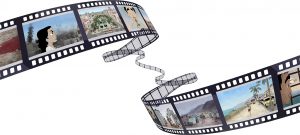Written and directed by Matts Grorud
Animation, 1hour 14 minutes
Norway, 2018
The Tower/Al Bourj tells the story of 11-year-old Wardi and her family. They live in Bourj al-Barajneh, a Palestinian refugee camp that was established in 1948 in Beirut, Lebanon. In The Tower, we follow Wardi for one day, as her great-grandfather Sidi hands her the key to their house in the Galilee − and Wardi sets out on a mission to find the hope that she believes he has lost, in order to save his life.
The film is about life in the camp. It tells how the generations that followed the 1948 exodus have struggled to return to Palestine and conveys the various ways in which members of Wardi’s family have held on to their personal kind of hope, how they have managed to find meaning in a surreal situation − being an eternal refugee, stateless in Lebanon.
The inspiration for this film came from stories that my mother, who was a social worker in Bourj al-Barajneh in the 1980s, told me and from my experiences while living in the camp from 2001 to 2002. The script is based on interviews I conducted with my friends and on written sources that deal with the oral history of the Palestinian refugees in Lebanon.
The film is fully animated in puppet animation and 2D, which allows the audience to sympathize with the various characters in a different way than in ordinary live action. The film is in many ways a project of humanizing Palestinian refugees, an effort to find ways that make people − in the Middle East and elsewhere in the world − see that the Palestinian stories could just as well be their own. The animation furthermore aims to make the otherwise rather dark subject accessible for a younger audience. Hopefully, this film will help new generations of Palestinians remember this part of their history and introduce the story to new generations elsewhere who otherwise would not know about it.

It has been important for me to tell these stories, to show the world that no matter how hard it might be to find a solution – given the Israeli stance on the refugee’s right to return that is articulated in UN resolutions – it should not be hard at all for people to take a stand and support this very right.
My intention and starting point was not to make another sad story about Palestinian refugees, but rather to show that the camps are filled with people like you and me who have dreams, aspirations, a sense of humor, hospitality, intelligence, and much more. Just like you and me they have good and bad days. I want to assert that these people, who are my friends, and their families deserve a better future than eternal exile without civil rights. The catastrophe that befell the Palestinians in 1948 should come to an end. Seventy years are seventy years too many. And my message conveyed through the film is that the all the Wardi’s in the Palestinian refugee camps should get a real chance to live!
Mats Grorud


